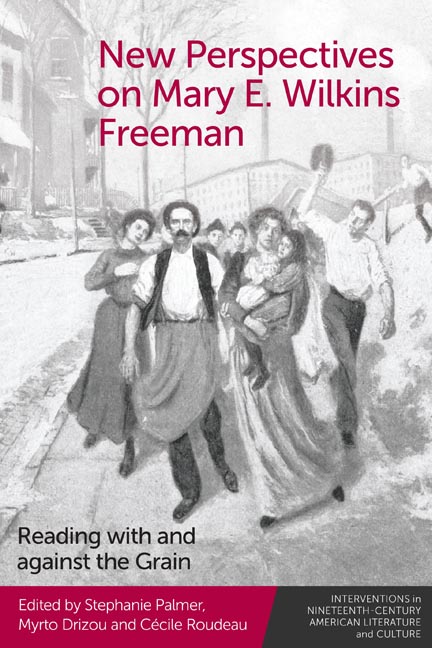Book contents
- Frontmatter
- Contents
- List of Figures
- Acknowledgments
- Contributors
- Reading Freeman Again, Anew
- Part I Kinship Outside of Normative Structures
- Part II Violent, Criminal, and Infanticidal: Freeman’s Odd Women
- Part III Women’s Work: Capital, Business, Labor
- Part IV Periodization Reconsidered
- Afterword: Why Mary E. Wilkins Freeman? Why Now? Where Next?
- Index
7 - Hunger Strikes: Queer Naturalism and the Gendering of Solidarity in Mary E. Wilkins Freeman’s The Portion of Labor
Published online by Cambridge University Press: 20 October 2023
- Frontmatter
- Contents
- List of Figures
- Acknowledgments
- Contributors
- Reading Freeman Again, Anew
- Part I Kinship Outside of Normative Structures
- Part II Violent, Criminal, and Infanticidal: Freeman’s Odd Women
- Part III Women’s Work: Capital, Business, Labor
- Part IV Periodization Reconsidered
- Afterword: Why Mary E. Wilkins Freeman? Why Now? Where Next?
- Index
Summary
In Mary E. Wilkins Freeman’s novel, The Portion of Labor (1901), set in the fictional New England factory town of Rowe, the wife of one of the town’s three shoe factory owners, Mrs Norman Lloyd, is out on a sleigh ride during an economic depression. She happens to see the young Ellen Brewster out riding with her unemployed father Andrew, a former worker in Mr Lloyd’s factory. Mr Lloyd frowns on the ride as wasteful; it indicates their lower-class status. By contrast, Mrs Lloyd comments on how “desperate” Ellen’s family must feel to be spending down their savings, reasoning “they might as well get a little good time out of it to remember by-and-by when there ain’t enough bread and butter” (120). Despite her feeling of sympathy for Ellen’s family, Mrs Lloyd nonetheless reflects that “the world couldn’t be regulated by women’s hearts, pleasant as it would be for the world and the women, since the final outcome would doubtless be destruction” (121).
The gravity of Mrs Lloyd’s pessimism is ironic on multiple levels. For one, the threat and reality of economic “destruction” in Rowe’s working-class community occurs throughout the novel, causing panic, unemployment, and hunger; it was a “city of strikes” (120). The question of “women’s hearts” also speaks to one of the novel’s central questions: what is the relation between gender and solidarity in the novel, and how do women in particular feel and articulate solidarity within and beyond the working class, within and beyond the constraints of their sex? In a world before New Deal welfare capitalism, such questions were urgent in part because survival could be at stake. In this chapter, I will build on literary scholarship by Mary V. Marchand, Donna M. Campbell, and J. Samaine Lockwood to elaborate on the gendering of solidarity in The Portion of Labor. I will address how solidarity extends from women’s queer or romantic relationships, and how those relations, together with the novel’s heterodox generic style, advance received innovative interpretations of literary naturalism.
- Type
- Chapter
- Information
- New Perspectives on Mary E. Wilkins FreemanReading with and against the Grain, pp. 131 - 146Publisher: Edinburgh University PressPrint publication year: 2023

